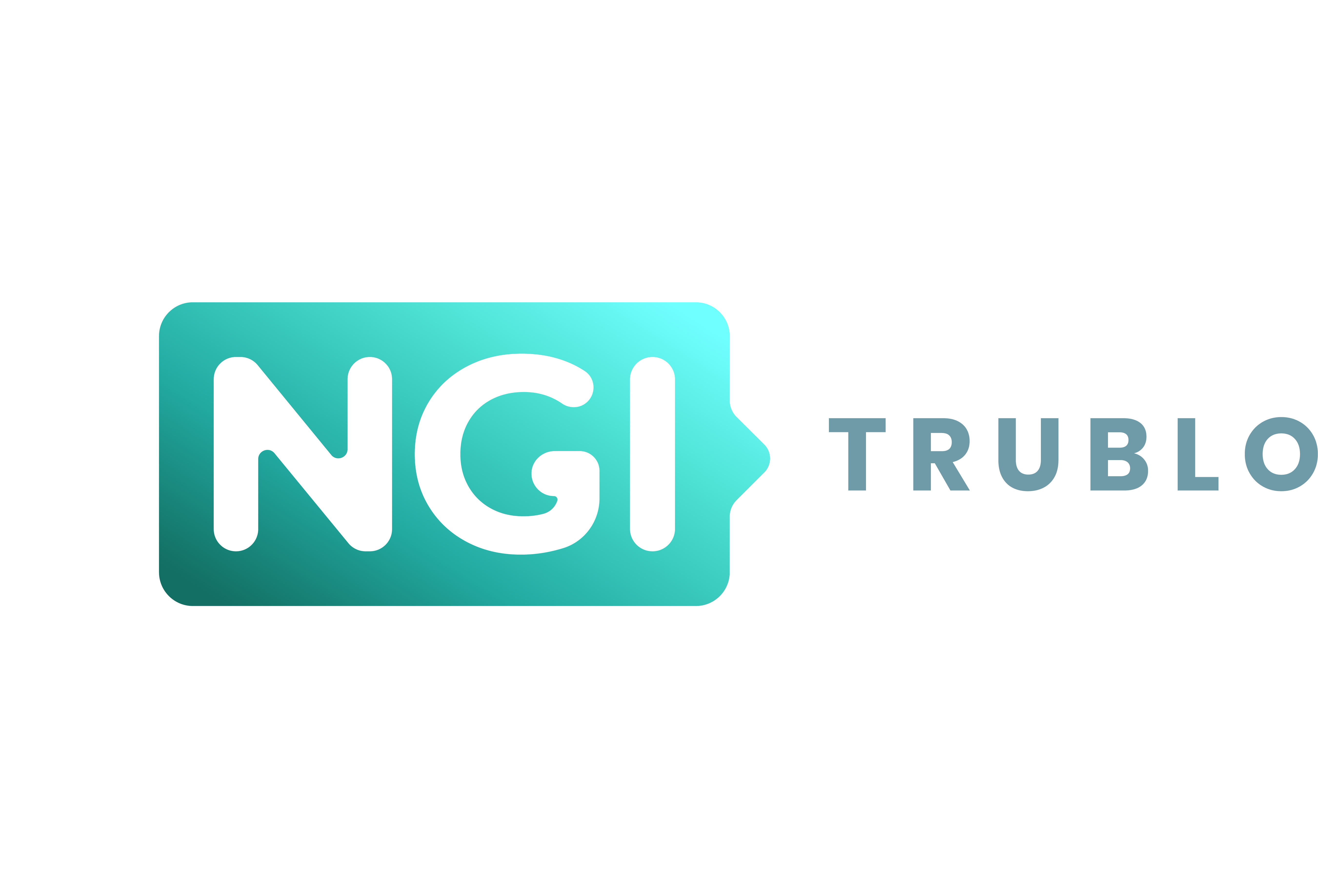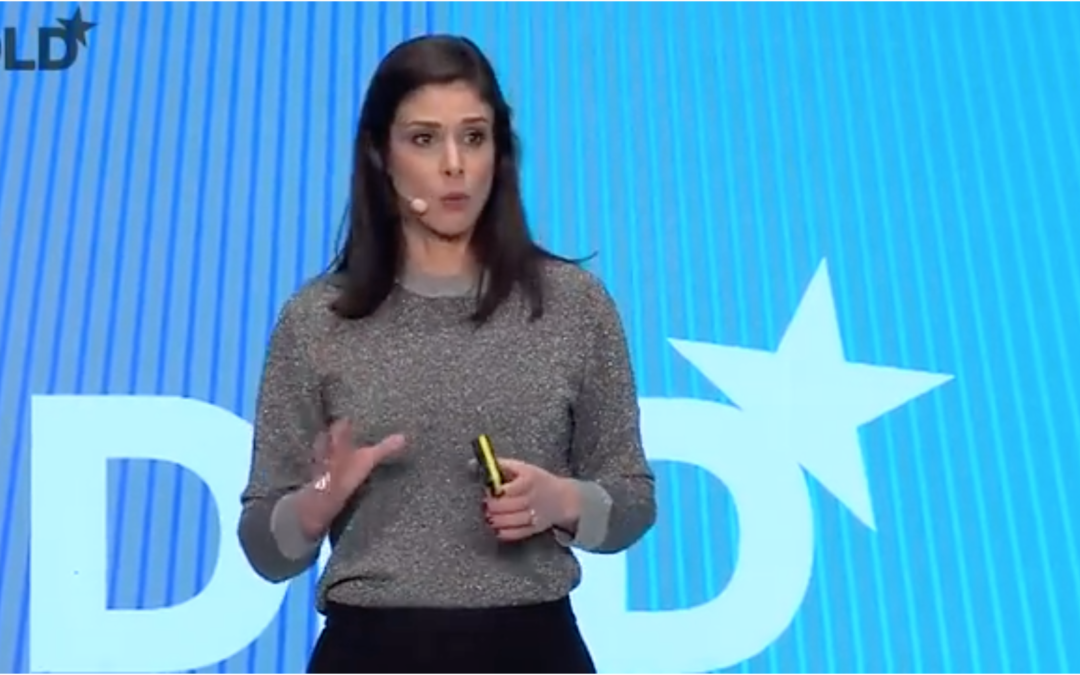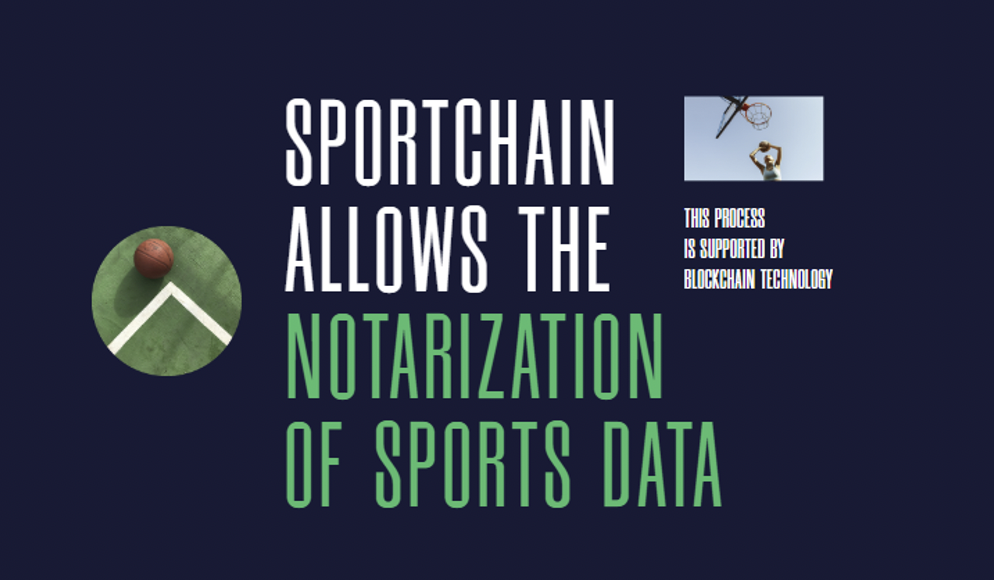
Since the beginning of the SportChain project, when it all started as an idea, huge progress has been made. This progress consists of several individual milestones that have been achieved and are further explained below. SportChain is a two-phase project and is currently approaching the end of phase one.
Market Research
At the beginning of the project, we started with market research to determine the issues and needs of the sports and related industries to figure out where to place SportChain within this landscape. In this market research, the sports and associated industries, such as the betting and insurance companies, were involved.
Identified Business Opportunities
Through our market research and its results, we identified business opportunities. These opportunities supported us when designing the architecture and where the focus of SportChain should be directed.
Designed an Architecture
We have designed a SportChain architecture that drastically enhances the state-of-the-art digital processes within the sports industry. Also, we added features to increase data security, privacy, and trust in the sports data. The figure below shows the high-level architecture.
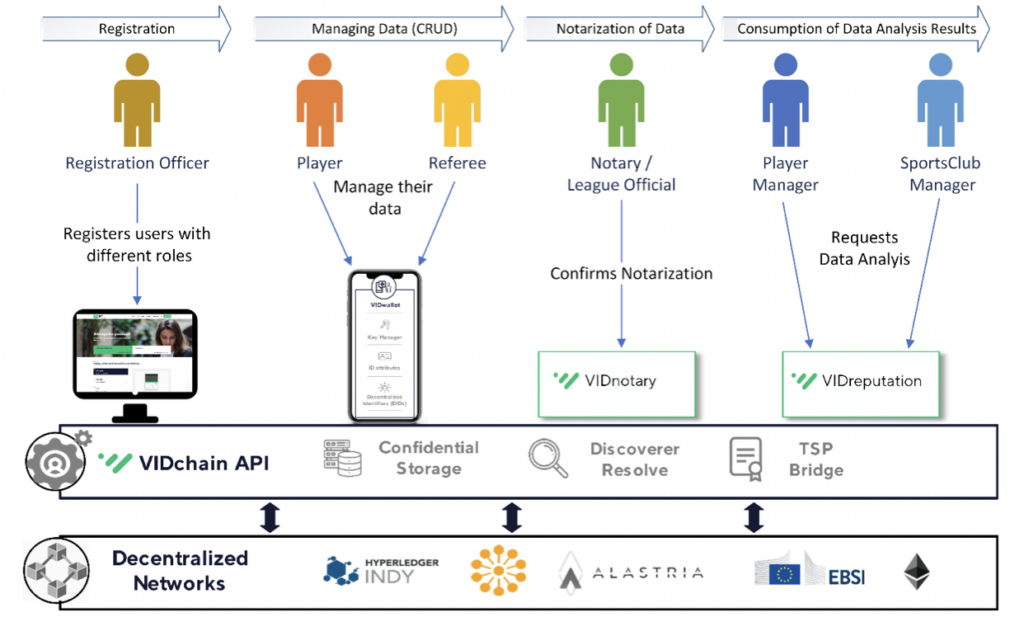
Figure 1: SportChain high-level architectural view including actors, components and main interaction flows
Implemented a Proof-of-Concept
Part of phase one was also the implementation of a proof-of-concept of the SportChain design. The most relevant parts are the SportChain portal, the integration with VIDwallet, and the integration with VIDcredentials studio.
SportChain Portal
The SportChain portal is the heart of SportChain. It offers the user interface between the users and the SportChain services. For instance, this portal will use team managers, league officials, notaries, and data reputation and analytics consumers. SportChain portal allows team managers to manage the team credentials, such as creating, issuing, or revoking player credentials. League officials use the SportChain portal to manage the league by issuing credentials for team managers and notaries and are also able to create matches and enter sports data that are being notarized by a dedicated notary afterwards. Last but not least, the portal offers a data catalogue that data consumers can use to search for data sets and statistical operations that will be performed on notarized data.
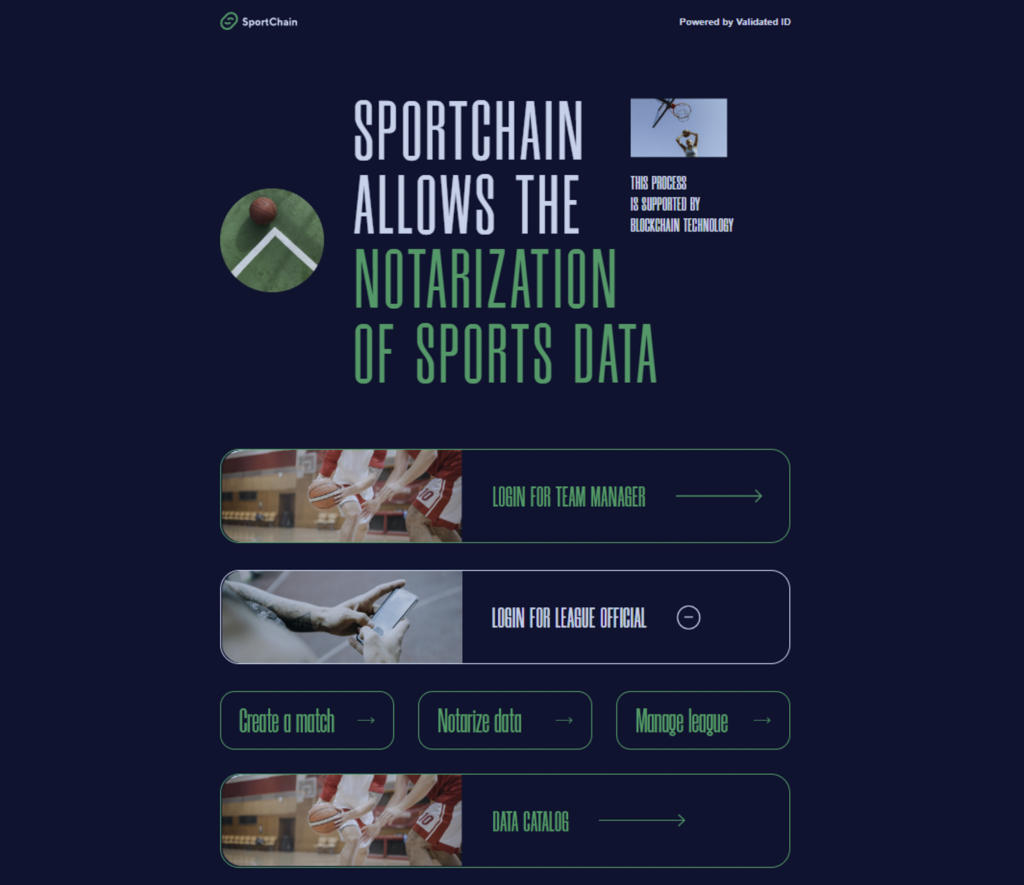
Figure 2: SportChain portal’s landing page with the different login options
VIDwallet Integration
VIDwallet is an SSI identity wallet developed by Validated ID. This identity wallet has been integrated into SportChain so that the actors can identify and authenticate themselves towards SportChain and also store and manage their digital identity data within their domain to ensure data security and privacy.
VIDcredentials Studio integration
VIDcredentials studio is a tool for credential issuers that provides a rich user interface with an advanced user experience. This tool is developed by Validated ID and has been adopted and integrated into SportChain, adding additional functionality to SpotChain. For instance, player credentials, special achievement credentials, or role credentials such as notaries or team managers can be issued and managed through this integrated tool.
Outlook
So far, exciting results have been achieved, but the journey for SportChain does not end here. Instead, the SportChain team is planning further to develop the platform, not only the basic functionality but also by implementing new exciting features. These planned features are detailed below in a short outlook.
Notarization Data Anchored on Blockchain
As data notarization is the process defined where a trustworthy party with special permissions, a so-called notary, verifies data and notarizes that these data are correct. This process can be performed in analogue and also in a digital way.
SportChain enables the data notarization of sports data, which have been entered by a league official. The notary verifies these data and confirms their correctness. In SportChain, the notarization process is based on hashing the data set that is being notarized, followed by timestamping and electronically signing these notarization data. This way, a verifier can verify if a specific data set has been notarized and also when this notarization was performed. As a new feature, SportChain plans to anchor these notarization data on a blockchain, in particular, on the Alastria blockchain. The benefit of having these data on the blockchain follows the general benefits of blockchains, such as transparency, immutability, decentralized and improved security. This new and exciting feature is planned to be implemented in phase two of SportChain.
Data Analytics Based on Notarized Data
Data analytics, reputation systems and forecasting systems (also known as Artificial Intelligence) have been hyped in recent years. This is because these methods offer enormous potential when applied correctly.
SportChain offers a data catalogue consisting of available data sets and data processing methods such as data analytics, data reputations and forecasting. All of these data processing methods use as input data only the notarized sports data. This way, the authenticity and integrity of these data are ensured, which elevates the trust in the calculated results. SportChain plans to implement data analytics such as various statistics and a basic reputation system that utilizes notarized input data stored on the Alastria blockchain. The reputation data could be used by a recruiting team to support their decision-making process. The benefit is the increased trust based on the ensured
properties data authenticity and integrity. This feature is planned to be released in phase two.
Contact
Contact SportChain: Please click on this link to the project page, including an overview of the team members.
SportChain Project Page (TruBlo)
Screenshots & visuals: Sportchain

Five Minute Blockchain
Welcome to a new edition of the TruBlo newsletter. We are funding 45 early-stage blockchain ideas to explore new options for “trusted content on future blockchains”. A list of all TruBlo projects is here: https://www.trublo.eu/projects/
Our main question for selecting news and links: How is the field of blockchain, content and trust evolving?
Estimated reading time: 5 min 12 secs
Updates this week:
TRUST
FTC sues US data broker Kochava
The Federal Trade Commission (FTC) has filed a suit against Kochava, a US-based data broker.
“Kochava’s data can reveal people’s visits to reproductive health clinics, places of worship, homeless and domestic violence shelters, and addiction recovery facilities. The FTC alleges that by selling data tracking people, Kochava is enabling others to identify individuals and exposing them to threats of stigma, stalking, discrimination, job loss, and even physical violence. The FTC’s lawsuit seeks to halt Kochava’s sale of sensitive geolocation data and require the company to delete the sensitive geolocation information it has collected.”
FTC
The Guardian
Two-thirds of UK youth are not interested in crypto
A survey conducted by youth marketing agency Seed in May 2022 showed low interest in cryptocurrency among young people in Britain.
“Responses revealed that 66% of so-called ‘zoomers’ aged 18-24 are not interested in cryptocurrency, with 10% willing to try it but won’t prefer it over other investments. It canvassed 2,000 people during May, which was the depths of the crypto crash. Women are even less interested in crypto, with three-quarters giving it a thumbs down. In contrast, half of men are willing to give it a try.The situation for NFTs was even worse, with 70% believing non-fungible tokens (NFTs) are scams.”
Ledger Insights
Facebooks pervasive pixel
A study using technology from Mozilla reveals the extent of data collection around the world.
The Markup
People buying guns with cryptocurrency leave a digital trail
Gun owners in the USA want no or minimal data registration about purchases and ownership. But buying weapons with crypto could leave an unintentional digital trail.
Coindesk
CONTENT
Sources: Netflix plans to launch ad tier in November, to be ahead of Disney+
In July, the company announced to plan for the introduction in early 2023. Now it looks like the launch will be done earlier for markets in the US, Canada, UK, France and Germany.
Variety
Google blocks TruthSocial app because of violent content
TruthSocial is a social media platform initiated by former US president Donald Trump after being banned from Twitter. Now it seems Google will not allow the app to be downloaded via the Google Play Store.
Axios
TechCrunch
French government uses AI to detect undeclared swimming pools
In France, homeowners must declare a swimming pool for accurate property tax. Authorities are now using machine learning software to analyse aerial photos.
“The software, developed in partnership with the consulting firm Capgemini and the US digital giant Google, was tested in nine regions — Alpes-Maritimes, Var, Bouches-du-Rhône, Ardèche, Rhône, Haute-Savoie, Morbihan, Maine-et-Loire and Vendée — and revealed more than 20,000 undeclared swimming pools, according to a report by the directorate. “
Euronews
Twitter tests an edit button for Tweets
A tweet can be edited for up to 30 minutes, and the edit history will be shown to users. The feature has been requested for a long time, though critics feat that the edit option might open the door to misuse.
The Verge
Little kids yelling “poop” at Alexa are driving up profits for some songs
“Pecunia non olet” is a Latin proverb that means “Money does not smell”. Now, some musicians report that songs with the word “poop” are getting many plays. The assumption is that this happens because little kids yelling “poop” activate Alexa.
Buzzfeed
BLOCKCHAIN
Helium developers propose switching to Solana
According to a blog post by the Helium Foundation, the platform wants to free up resources needed to develop and maintain its own blockchain and instead plans to switch to Solana.
“Developers behind the Helium network – a grid of medium-range wireless hotspots pitched as an alternative to hard-wired internet service – are proposing to migrate away from the project’s own blockchain onto Solana, in pursuit of faster transaction speeds, higher uptimes and more interoperability with other blockchains as key reasons. The Helium Foundation wrote in a Medium post this week that the new proposal from the Helium core developer team would improve the operational efficiency “significantly.” The proposal to move toward Solana and away from Helium’s own blockchain, officially known as HIP 70, “addresses network speed, reliability and scalability”.
Coinbase
Web3 is going great
Misplaced decimal allowed traders in Georgia to cash out at 100x the regular price
Coinbase tries to get its money back after discovering that in late August, Georgia traders could cash out crypto at 100 times the intended market rate. The Georgian Lari (GEL) exchange rate was 290, not 2,90. As a result, an estimated 900 traders could sell their holdings at a considerable profit. Coinbase is now seeking payback; accounts have been locked in some cases. The misplaced decimal point was not detected for seven hours.
Blockworks
Market analysis: The state of crypto banks in 2022
Users: From October 2021 to May 2022, Crypto.com saw its user base grow from 10M to 50M, an increase of 400%. Similarly, the number of Nexo users doubled from over 2M to over 4M from September 2021 to May 2022. Crypto lending has surged over the last two years and publicizes a vision of financial services where lenders and borrowers avoid the traditional financial firms that position themselves as the gatekeepers for loans or other products.
Company size: While some crypto banks are facing hiring headwinds, others are unperturbed amid market volatility. In June 2022, BlockFi announced a 20% layoff — the company headcount dropped from about 850 in January to about 680 by the end of July. Meanwhile, Nexo’s LinkedIn headcount has jumped nearly 60% since January 2022.
Blockdata
Short links
- Google and YouTube outline plans for content moderation in US midterm elections TechCrunch
- How to add DuckDuck Go Privacy Essentials to your browser ZD Net
- Web3 Domain Name Service Could Lose Its Web Address Because Programmer Who Can Renew It Sits in Jail Coindesk
- Snap appears to have axed its Web3 team as part of the social media company’s decision to restructure and cut its headcount by about 20%. Blockworks
- 62% of wallets did not sell Bitcoin for a year amid a bear market Cointelegraph
Would you happen to have any feedback or suggestions? Contact us via info@trublo.eu
Photo by Bernard Hermant on Unsplash



